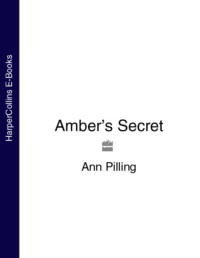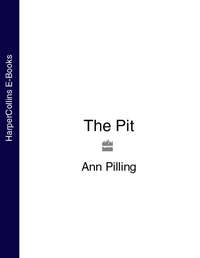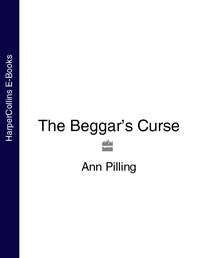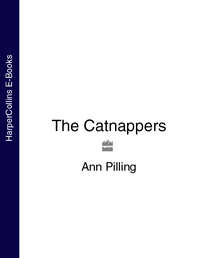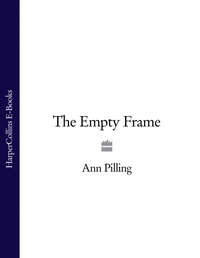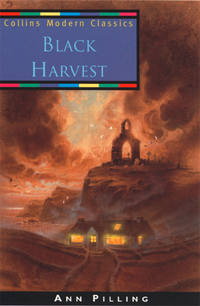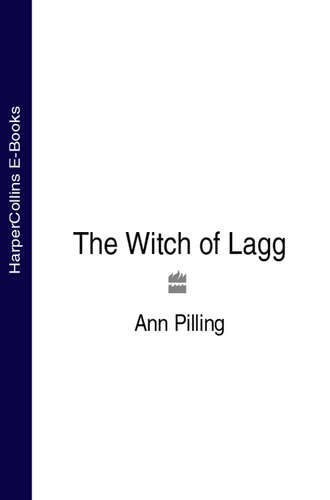
Полная версия
The Witch of Lagg
“Come back!” she screamed, tugging at the tape. “Don’t be so foul, you two. It’s not funny. This thing’s really tight … I’m getting wet. Oh, come on”
She didn’t want to do an Oliver and be a spoilsport, though it was rather typical of him to lend his tape measure for a trick he’d have hated himself. But Prill didn’t like it. The tide was coming in, and the bumps and knobbles of the slimy black stake were digging into her back. “Colin!” she yelled, starting to panic.
“All right, all right. Hang on Joan of Arc.” He came racing back. He knew Prill was rather thin-skinned about practical jokes. They were both ankle-deep in water now while the cowardly Oliver was striding off firmly towards the dunes. “Sorry,” he muttered, as Prill stood there crossly, lashed to the great wooden stump with her brother picking at the knots. “I didn’t mean to tie it quite so tightly … there.”
She was free, rubbing her wrists and trying to find a bit of sandbank to stand on, to escape from the swirling water. “Trying to drown me, were you? And listen to Oliver, he’s laughing at us. He’s an absolute pig. I’ll tie him up, next time.”
“Nobody’s laughing,” Colin said quietly. “Don’t over-react. He’s just embarrassed because it was his tape.”
“He is laughing,” Prill interrupted angrily, starting to run. “Just wait till I get hold of him.” She began to chase up the beach after the skinny retreating figure in its baggy shorts.
Colin stared after them, and the laughter came again, on the wind. The sound sent an icy chill through him. Prill was quite right, someone had laughed at her as she stood lashed to the stake with Oliver’s tape measure, and they were laughing now. But it was a thin, high-pitched screaming kind of laugh, not Oliver’s voice at all. He’d heard it before. It was the laughter he’d heard in the woodland when the barrow tipped over and the stones hurt his foot.
CHAPTER FIVE
It was just half past nine. Oliver had been writing his diary and he was now in the bathroom, going through his elaborate bedtime ritual of cleaning his teeth and brushing his hair one hundred times. His mother believed it was the only sure way of avoiding nits.
He called his diary a journal, but it wasn’t a grand leather-bound affair like Hugo Grierson’s, just a small Woolworth’s exercise book, and he didn’t write in it every day. It was kept for events of special importance in his life. There’d been quite a lot to say, tonight.
“This holiday’s going to be lonely for me,” read Colin. He’d come to talk to Oliver and found the bedroom empty and the notebook open on a table. Down the passage he could hear his cousin making splashing noises at the washbasin. Guiltily, Colin read on.
“They never take much notice of me,” the account continued, “but now they’ve made friends with Duncan Ross it’s going to be even worse. He’s just Colin’s type, big and sporty. They even look alike. Daren’t think what they say about me, when I’m not there.”
Colin and Prill were rather attractive children, and poor Oliver was only too aware that he was a bit funny-looking. Colin was tall and broad, with a handsome mop of auburn hair, and Prill was growing more and more like something out of a Victorian painting. She had red hair too, and she wore it long. Both had large brown eyes and the kind of skin that tanned easily. People sometimes commented on their good looks in Oliver’s presence. He didn’t think it was very tactful. They did quite well in school and they were both good swimmers, whereas Oliver swam like a brick. Colin was getting good at rugby too, according to his father. “Where was I when all the prizes were given out?” Oliver had written bitterly, thinking about those great beefy shoulders. “I can’t help being small for my age,” the spindly writing went on, “and I was very ill when I was little. That can weaken you for life. Those two never think about that of course. I couldn’t have lifted those stones at Lochashiel even if I’d wanted to (WHICH I DIDN’T), and anyway, those bones I dug up from the mud may be extremely important. Not sure I’ll show them though.”
Colin, feeling more and more uncomfortable, turned the page in fascination. “What I really ought to find out is—”
“Seen enough?” said a spiteful little voice from the doorway. Oliver was wearing striped Viyella pyjamas and carrying a large sponge-bag, and his thin face was dark pink with rage. He stormed across the room and snatched the notebook from Colin’s fingers with such force that it ripped across the back. “Do you make a habit of reading other people’s diaries, Colin?” he spat out, in a strangled voice.
“No more than you do,” his cousin answered smartly. “You were reading Mr Grierson’s. I saw you.”
There was an abrupt silence, and Oliver flushed darker than ever. “That was different,” he stammered. “There’s something going on here. It involves Mr Grierson, and we’ve got to get to the bottom of it.”
“I know,” Colin said quietly. “That’s why I’ve come. Prill’s coming too, in a minute.”
The two boys stared at one another. Oliver had lost his usual composure and his face had somehow crumpled up. He actually looked as if he might cry, when he saw the ripped notebook.
Colin felt rather sorry for him, and he hated himself for having read the diary. At least he knew how things looked to Oliver.
“I’m sorry, Oll,” he said. “I shouldn’t have read your diary and … and we didn’t mean to be unfriendly.”
There was a pause, then Colin said awkwardly, “Well, what was in Grierson’s diary, anything important?”
Oliver shrugged. “It was all a bit boring really, with sums down the margin. He obviously studies his bank balance when there’s not much to say. That’s the real sign of a miser.”
“Anything else?” said Colin, trying to sound casual. The familiar faraway expression in Oliver’s eyes told him that there was.
“Yes, as a matter of fact,” his cousin replied, in rather a grand voice. He knew Colin was dying to know. “He’d written something from the bible, in red, after every single entry. And he’d written it backwards.”
“Could you work it out?” Colin asked, more and more intrigued.
“Oh yes,” Oliver said airily. “Easy as anything. It’s mirror writing. Anyone can do it, once they’ve got the knack.”
“Go on then, what did it say?”
“‘Oh God, wherefore art thou absent from us so long’,” quoted Oliver. “‘Save me, for the waters have entered my soul’. Things like that. They were all the same, all about being cut off from the land of the living.”
“Heavens,” Colin muttered dumbly. “Why write that sort of thing in a diary?”
Oliver pulled a face. “Search me. Perhaps he’s brooding over something … perhaps he feels guilty. He looks guilty, don’t you think? He’s got that shifty look round his eyes.”
Colin tried to recall Grierson’s face. They’d only seen the man once. “I don’t know,” he said thoughtfully. “I thought he was rather striking, as a matter of fact, but definitely unhappy-looking. Why write backwards though? That’s bizarre.”
“Witches did things back to front,” Oliver said solemnly. “To undo the power of good.”
“Oh Oll, surely you’re not saying—”
“I’m not saying anything, yet,” the boy cut in impatiently. “I’m just telling you they did, that’s all. It’s worth remembering.”
There was a sudden tap on the door.
“That’ll be Prill,” Colin said, whispering just in case Aunt Phyllis was creeping about somewhere. “She wanted to talk to you as well.”
“Wait a minute.” Spread over Oliver’s bed was a navy-blue T-shirt with a collection of small bones on it. They were arranged in a definite pattern but Oliver had scooped them all up into a polythene bag before Colin could stop him.
“What did you do that for?” he said in frustration. “You said they were important, in – in your diary …” He went red.
“Not sure about them yet,” Oliver replied curtly. “Anyway, Prill’s squeamish. Don’t go on about them.” He shoved the bag under his pillow.
“Mr Grierson’s out there,” Prill said in a low voice, coming inside and shutting the door firmly. “I was just leaving my room, and I saw him. What’s he doing down here?”
“Eavesdropping probably,” Colin muttered. “We think there’s something peculiar about him.”
“You can say that again. I think he’s more than peculiar, I think he’s unhinged. He’s so violent, when he speaks to you, he sort of hisses. Allie’s absolutely terrified of him.”
“He’s got the devil in him,” Oliver announced flatly. “Duncan Ross said that, and for once I agree with him.”
The other two stared at him. “You don’t mean literally, Oll? What on earth are you talking about?” Colin said at last.
“I don’t know, quite,” Oliver said evenly, cupping his chin in his hands. “I just know there’s something wrong here, but I’m not at all sure it’s his fault. This awful behaviour’s not really typical apparently. He doesn’t usually rage quite so much at people, according to what Ma’s heard from Granny MacCann. He’s always been a loner, at least, he has since his wife died.”
“Well, he’s foul to the Rosses,” Colin said quietly. “Really foul.”
Oliver didn’t reply, he was obviously thinking about what might have soured the man, over the years. “His wife fell off a horse and was killed,” he informed them, “when their child was four.”
“Helen,” Prill murmured sadly, remembering the rocking-horse room.
“Yes, Helen. Well, that can’t have been much fun for him, being left on his own and everything, and he’s fallen out with her now, because she married someone he didn’t approve of. Then there’s the potty old mother, he looked after her for years and years. When he was a boy she used to drive him to church three times every Sunday, and make him learn great chunks of the Bible off by heart. If he got anything wrong she hit him. Well, that’s what Granny MacCann told Ma. No wonder he never goes to church these days.”
Colin and Prill exchanged sly glances. It sounded so like Oliver, an elderly religious mother, and being forced to go to church, and having to learn pieces of the Bible. Aunt Phyllis did that to him.
Oliver was still thinking of those red back to front bits in Grierson’s diary but he kept silent. Hugo Grierson had chosen the most agonized verses of the Psalms he could think of. Nothing cheerful like “Make a joyful noise unto the Lord” or “The Lord is My Shepherd”. He must be deeply guilty about something. What had he done? Had he got rich by embezzling other people’s money, or had he killed somebody? Lagg Castle was a perfect place for a murder, all those echoing corridors, all those pine forests outside, to hide the body in …
“Why were you so against those stones being moved, Oll?” Colin’s voice jerked him back to reality. “We could see you didn’t want them touched. That’s why we’ve come, really.”
“And because of what went on in the forest,” Oliver added firmly. “You’d better tell me what did happen, hadn’t you? I mean when you were on your own.”
Their ten year old cousin, undersized and feeble, now spoke with immense authority. There had been moments like this before, times when they almost feared Oliver, times when those curious pale eyes of his saw so much more in events than the eyes of ordinary people.
“Someone jumped on my back,” Colin said blankly, going cold at the very thought of it. “Someone I couldn’t see leapt on me, and dug their fingers into my neck, and … they were so light and quick about it I – I thought it was you.”
He expected some outraged response from poor Oliver who’d already had his diary read, and his private thoughts laid bare, but the boy didn’t seem at all angry. His face had darkened and he was obviously pursuing rather a different line of thought.
“So she is out,” he said, in a small voice, and he scratched his head thoughtfully.
“Who’s ‘out’?” demanded Prill, bewildered.
“Aggie Ross.”
“Oh, Oll,” Colin said impatiently. “That’s nuts. We’ve no idea who Aggie Ross is. She may just be some crony of Granny MacCann’s, or a relation of Duncan’s, for all we know.”
“And you can’t take what she says too seriously,” Prill chipped in. “I mean she’s so doddery. She’s probably wandering in her mind. Old people like her get all kinds of weird ideas.”
“She seemed perfectly sane and sensible to me,” Oliver said coldly, remembering how the Blakemans had cracked jokes about her being a witch. “’Thou shalt not suffer a witch to live’,” he said aloud. “Wonder how that comes into it?”
Colin looked at him keenly. “I saw that too. It was embroidered on that sampler behind the cabinet.”
“Perhaps Aggie Ross was a witch,” muttered Oliver.
“And perhaps that cairn was the remains of her house.”
“And we’ve broken into it,” Colin said, “and set her free. Is that what you’re getting at?”
“Could be.”
There was a long embarrassed silence. Oliver had had strange ideas before, but this was fantastic.
“If I’m right,” he went on, talking more to himself than to the others, “she won’t leave us alone. Something else will happen. You’ll see. Unless of course we take all the stones back again.”
Colin stared at him. He could just imagine what Angus Ross would say if a small boy asked him to dismantle a newly-repaired stone wall, to pacify a nonexistent witch.
They were still sitting there, looking at one another in blank confusion, when the door burst open and Aunt Phyllis appeared. She was not pleased.
“Ten thirty,” she snapped, consulting her watch. “What’s this, may I ask? A mothers’ meeting? Colin, Prill, off to bed at once! Lights out, Oliver, you know the rules. Have you cleaned your teeth?”
“Yes, Mother,” said a muffled voice from under the eiderdown. “And brushed my hair.”
He listened to Colin’s door bang shut, then to Prill’s. Ten minutes later he heard his mother climb into bed. They had adjoining rooms and the walls were very thin, only plasterboard partitions dividing up what had once been a vast storage area in the basement.
Soon she was snoring steadily. Oliver got out his diary, switched a little torch on, and re-read it. Then he lay back, thinking about witches, and about Aggie Ross and Granny MacCann.
Ma wouldn’t let him read spooky books, and she’d be very disturbed if she thought that he was getting seriously interested in witchcraft. She was a devout woman and the Bible warned against meddling with what it called “the powers of darkness”. But the text was there, on that sampler. What could it mean?
“Save me, Oh God, for the waters are come in, unto my soul.” Oliver had written it down in small neat capitals. The words filled him with sadness for Hugo Grierson, shut up all alone in this ugly old house. Why did he torment himself so? And why did he use mirror-writing? That struck him as extremely peculiar. Witches did things backwards. It seemed that the beauty of the sea and the woodlands of Lagg, instead of gladdening the man’s heart plunged him into black despair. It was a lovely place, but there was a kind of brooding sorrow about it all.
Oliver was tired, but he always read a little at night, to get himself off to sleep. He grinned as he heard his mother’s even snoring, and shone his high intensity pocket torch on the pages of his book. He’d smuggled it up here without her seeing it. It was The Bumper Annual of Great Horror Stories.
CHAPTER SIX
At the other end of the stone passage Prill had just sat up in bed. She was annoyed because it had taken her a long time to get off to sleep after that conversation with Oliver, and her hot water bottle had gone cold – a hot water bottle in August – but it was chilly in the dungeons at night. Then, just as she was drifting off at last, Aunt Phyllis had woken her up again.
When she’d opened her eyes she’d been dimly aware of footsteps coming and going, shuffling sort of steps, the kind you make if you slither along in flat rubber shoes. Aunt Phyllis had several pairs. She was obsessed about not making any unnecessary noise. Then Prill heard her singing softly to herself.
What on earth was the woman doing? She’d go mad if any of the children went round singing at one in the morning. She’d report it to the management (Dad), who’d warned them all that Mr Grierson was a funny customer and had to be handled with care. Yet here she was, singing at dead of night, and creeping up and down. Was she looking under all their doors, perhaps, to check that they’d obeyed lights out? Prill couldn’t understand it.
As she listened, though, she realized that it couldn’t be her aunt singing. It must be the radio, or a tape perhaps. But that didn’t make sense. Nobody had brought a tape recorder and they certainly didn’t broadcast church services in the middle of the night … Prill began to feel uneasy.
She crept out of bed, stood in the middle of the room, and listened carefully. The voice was a woman’s, young and sweet, and it had a distinct Scots accent. She was singing a hymn, very slowly and mournfully, something Prill had never heard before:
Конец ознакомительного фрагмента.
Текст предоставлен ООО «ЛитРес».
Прочитайте эту книгу целиком, купив полную легальную версию на ЛитРес.
Безопасно оплатить книгу можно банковской картой Visa, MasterCard, Maestro, со счета мобильного телефона, с платежного терминала, в салоне МТС или Связной, через PayPal, WebMoney, Яндекс.Деньги, QIWI Кошелек, бонусными картами или другим удобным Вам способом.




